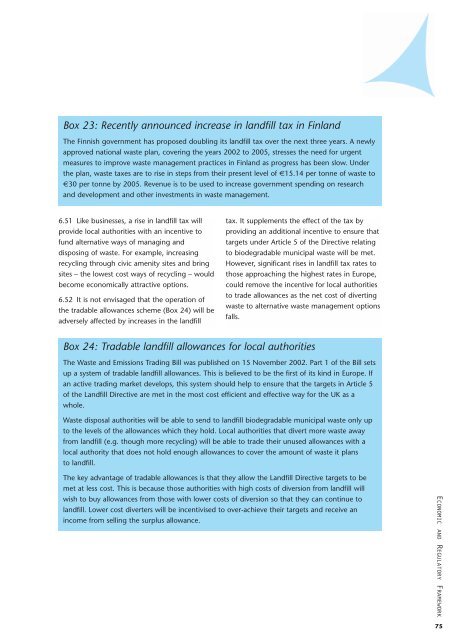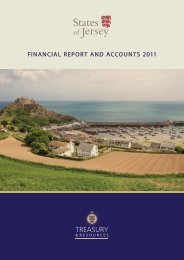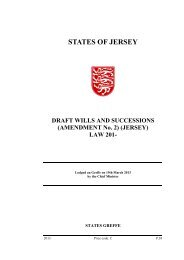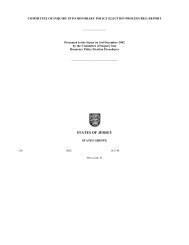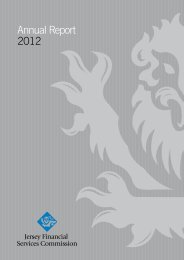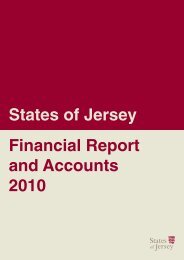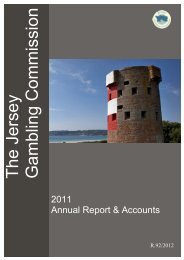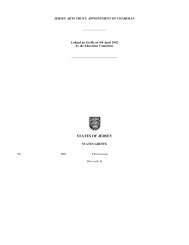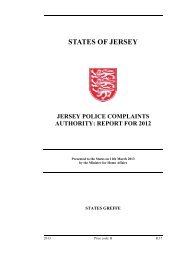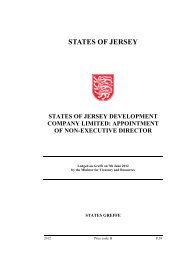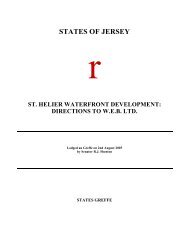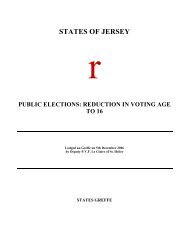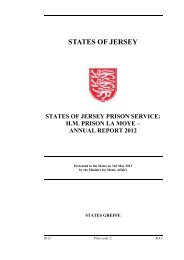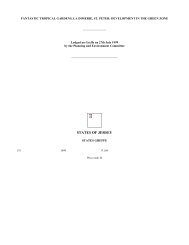Waste not want not - States Assembly
Waste not want not - States Assembly
Waste not want not - States Assembly
Create successful ePaper yourself
Turn your PDF publications into a flip-book with our unique Google optimized e-Paper software.
Box 23: Recently announced increase in landfill tax in Finland<br />
The Finnish government has proposed doubling its landfill tax over the next three years. A newly<br />
approved national waste plan, covering the years 2002 to 2005, stresses the need for urgent<br />
measures to improve waste management practices in Finland as progress has been slow. Under<br />
the plan, waste taxes are to rise in steps from their present level of €15.14 per tonne of waste to<br />
€30 per tonne by 2005. Revenue is to be used to increase government spending on research<br />
and development and other investments in waste management.<br />
6.51 Like businesses, a rise in landfill tax will<br />
provide local authorities with an incentive to<br />
fund alternative ways of managing and<br />
disposing of waste. For example, increasing<br />
recycling through civic amenity sites and bring<br />
sites – the lowest cost ways of recycling – would<br />
become economically attractive options.<br />
6.52 It is <strong>not</strong> envisaged that the operation of<br />
the tradable allowances scheme (Box 24) will be<br />
adversely affected by increases in the landfill<br />
tax. It supplements the effect of the tax by<br />
providing an additional incentive to ensure that<br />
targets under Article 5 of the Directive relating<br />
to biodegradable municipal waste will be met.<br />
However, significant rises in landfill tax rates to<br />
those approaching the highest rates in Europe,<br />
could remove the incentive for local authorities<br />
to trade allowances as the net cost of diverting<br />
waste to alternative waste management options<br />
falls.<br />
Box 24: Tradable landfill allowances for local authorities<br />
The <strong>Waste</strong> and Emissions Trading Bill was published on 15 November 2002. Part 1 of the Bill sets<br />
up a system of tradable landfill allowances. This is believed to be the first of its kind in Europe. If<br />
an active trading market develops, this system should help to ensure that the targets in Article 5<br />
of the Landfill Directive are met in the most cost efficient and effective way for the UK as a<br />
whole.<br />
<strong>Waste</strong> disposal authorities will be able to send to landfill biodegradable municipal waste only up<br />
to the levels of the allowances which they hold. Local authorities that divert more waste away<br />
from landfill (e.g. though more recycling) will be able to trade their unused allowances with a<br />
local authority that does <strong>not</strong> hold enough allowances to cover the amount of waste it plans<br />
to landfill.<br />
The key advantage of tradable allowances is that they allow the Landfill Directive targets to be<br />
met at less cost. This is because those authorities with high costs of diversion from landfill will<br />
wish to buy allowances from those with lower costs of diversion so that they can continue to<br />
landfill. Lower cost diverters will be incentivised to over-achieve their targets and receive an<br />
income from selling the surplus allowance.<br />
ECONOMIC AND REGULATORY FRAMEWORK<br />
75


